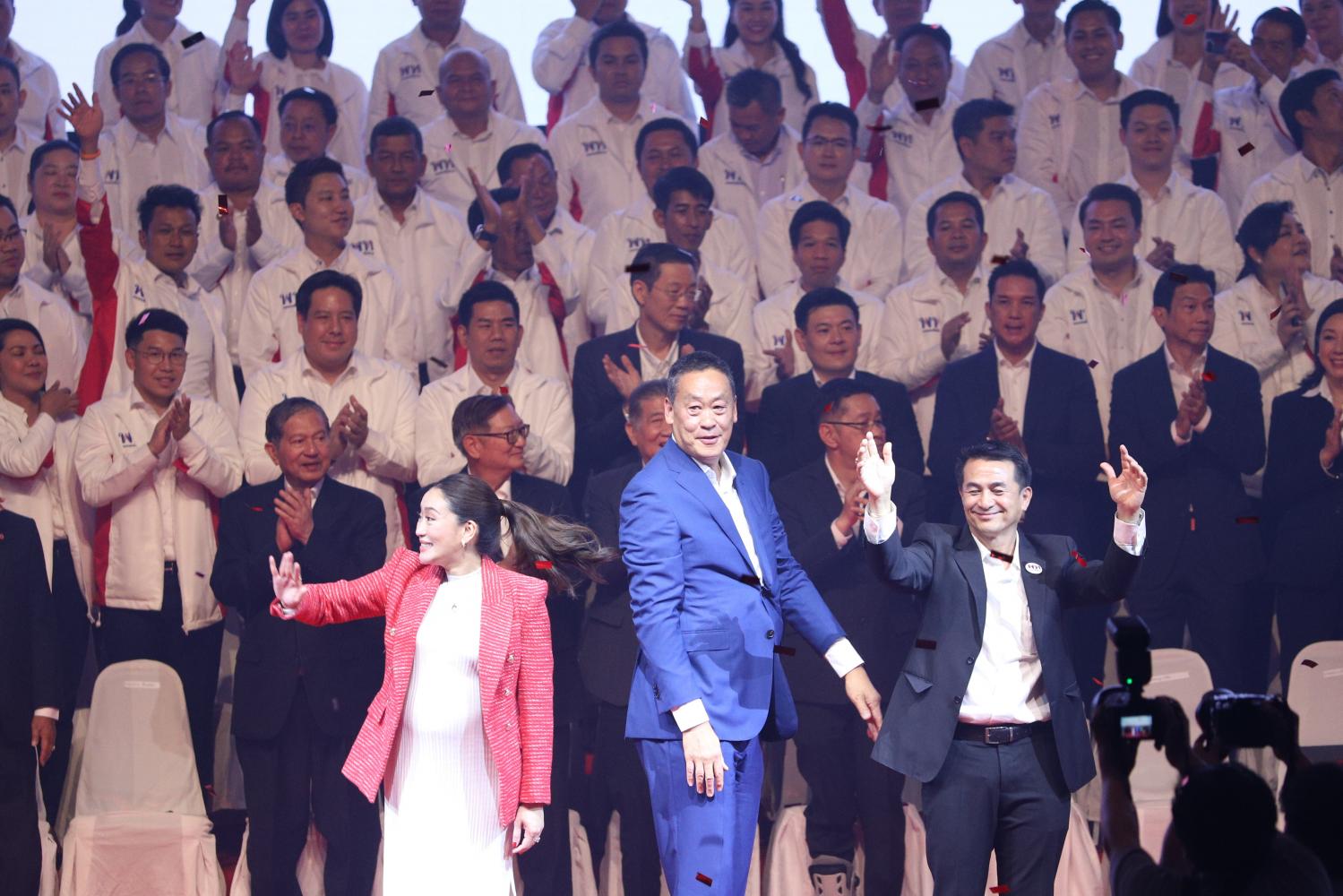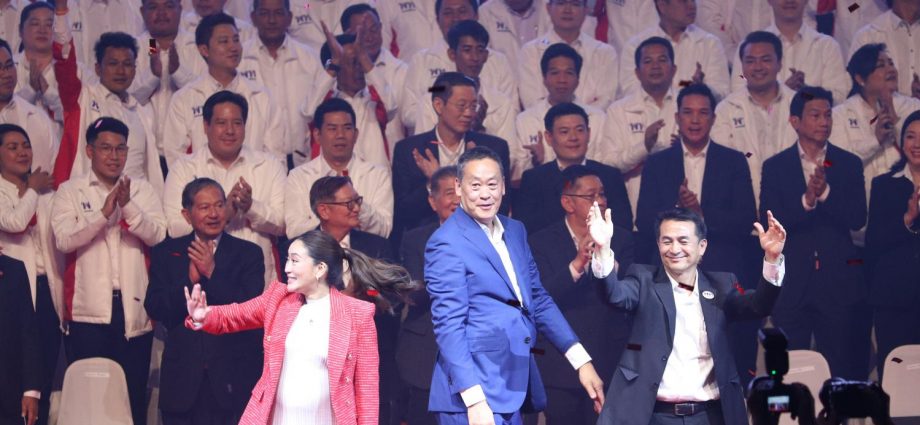Electronic payments among poll pledges

The Pheu Thai Party has touted a number of campaign policies involving cash handouts to woo voters ahead of the general election, including a “digital wallet” and financial aid for families that earn a monthly income of 20,000 baht or less.
The main opposition party on Friday unveiled the policies and also introduced the candidates who will be running for House seats in 400 constituencies at Thammasat University’s Rangsit campus.
In a speech during the event, property tycoon Srettha Thavisin, a key Pheu Thai figure, said the party has come up with policies aimed at stimulating the economy via a digital wallet intended for Thais aged 16 and older.
Mr Srettha said the digital money could only be spent at community shops within a four-kilometre radius of their homes and is valid for six months. Vendors will be able to exchange the digital money for cash at state banks.
“This policy will help stimulate the economy and boost cash flows in communities, which in turn will ensure the economy will turn around and prosper again from the community level up to the national level,” he said.
“The policy will inject money into the system and bring [informal] businesses that do not pay taxes into the system, which will enable authorities to collect 300 billion baht in taxes. There will be no mafia controlling these businesses nor rogue police officers who extort money.”
He said if Pheu Thai forms the government after the general election, it will replace compulsory military conscription with voluntary enlistment in order to promote military professionalism.
Mr Srettha serves as an adviser to Paetongtarn Shinawatra, Pheu Thai’s chief adviser on public participation and innovation and head of the “Pheu Thai Family”.
He and Ms Paetongtarn are widely speculated to be among the party’s prime ministerial candidates.
Ms Paetongtarn told the gathering that Pheu Thai’s policies will help narrow the income gap and raise earnings above inflation.
Another policy will offer temporary financial aid to families that earn a monthly income of 20,000 baht or less, she said.
“This policy may seem like a populist one, but in fact, it is intended to boost the GDP,” she said.
Another policy will promote blockchain technology to turn Thailand into an Asean financial technology centre, enabling businesses to mobilise funds from around the world, she noted.

